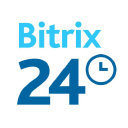My Gaming Distribution Business Makes $1M/Year
Note: This business is no longer running. It was started in 2013 and ended in 2024. Reason for closure: Shut Down.
Hello! Who are you and what business did you start?
My name is Mikhail Tsyrulnikov. I live in Tel Aviv and lead the company Gameray. I completed my higher technical education at MIEM HSE in Moscow and received an MBA from Bayes Business School in London.
Since 2013, I have been involved in developing businesses in the field of digital game distribution. Our flagship project, Gameray, is a retail platform where gamers can conveniently and safely purchase PC games from over 100 publishers. Our annual turnover exceeds 3 million euros.

What's your backstory and how did you come up with the idea?
I worked as a project manager at one of the largest online stores in the CIS, and observed how, at that time, physical logistics significantly limited sales. The idea of doing something in the field of e-commerce greatly attracted me, and in 2013, the sector was rapidly growing...















